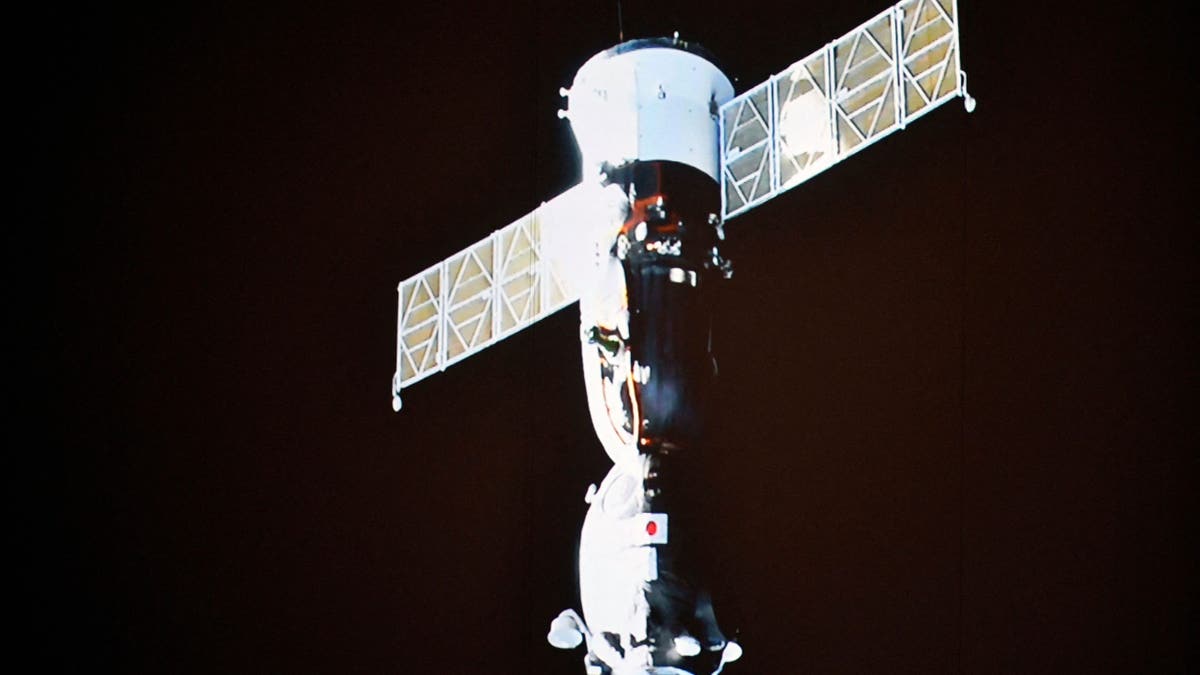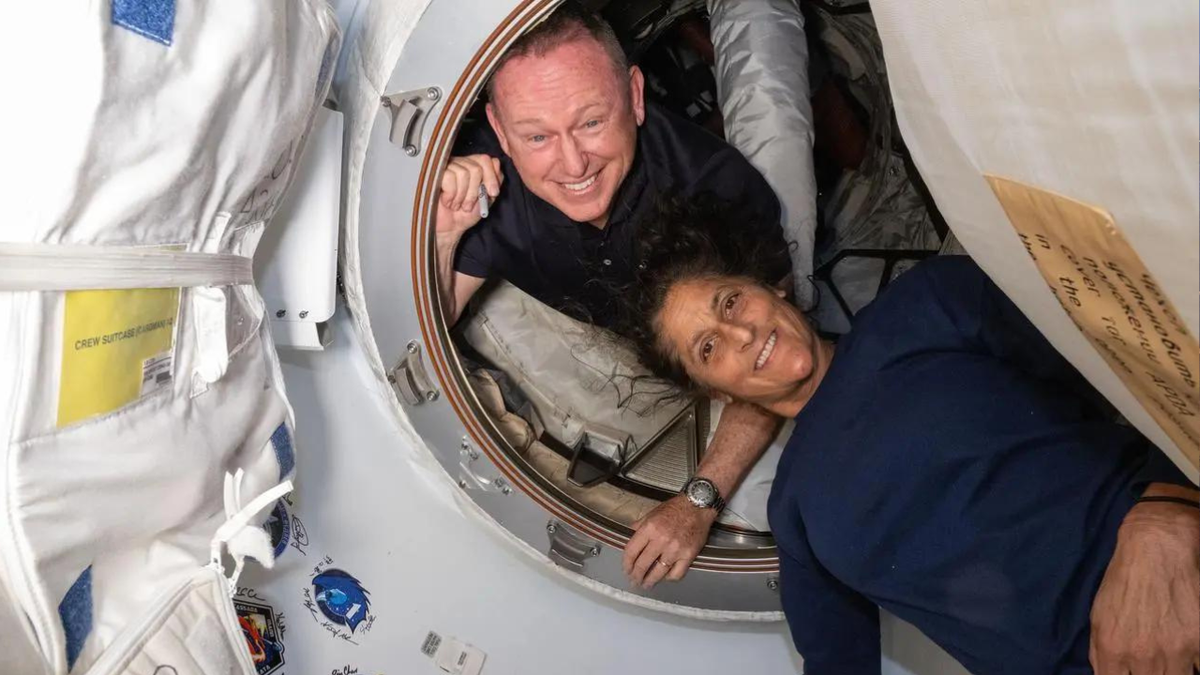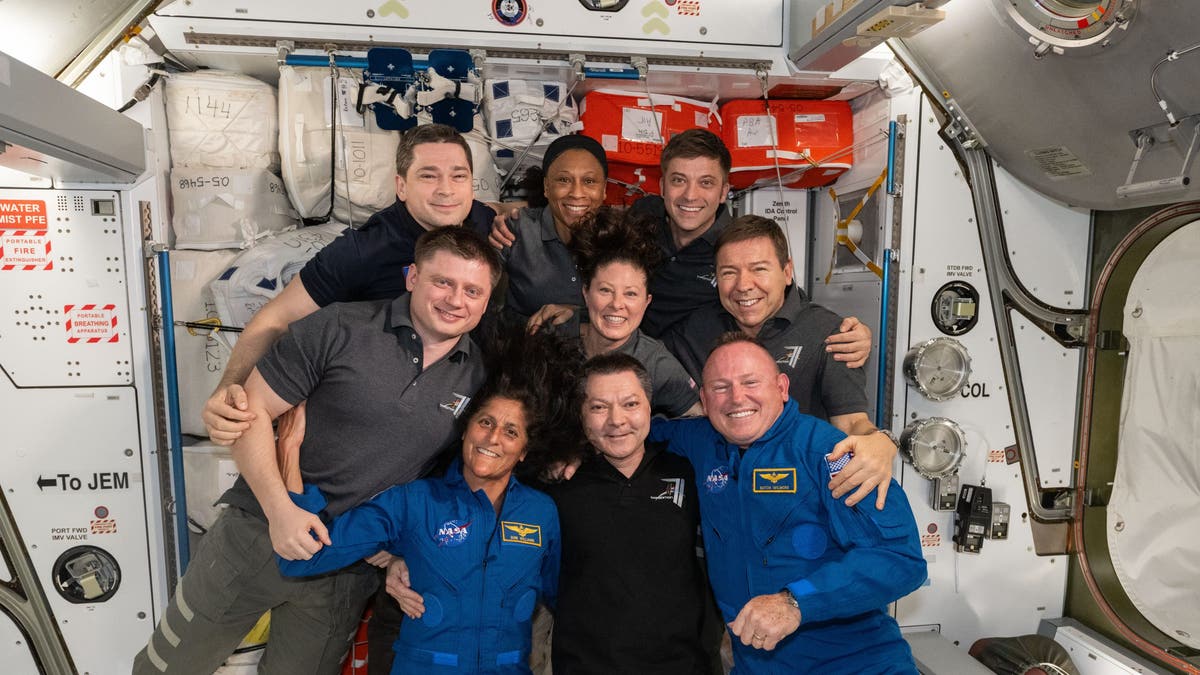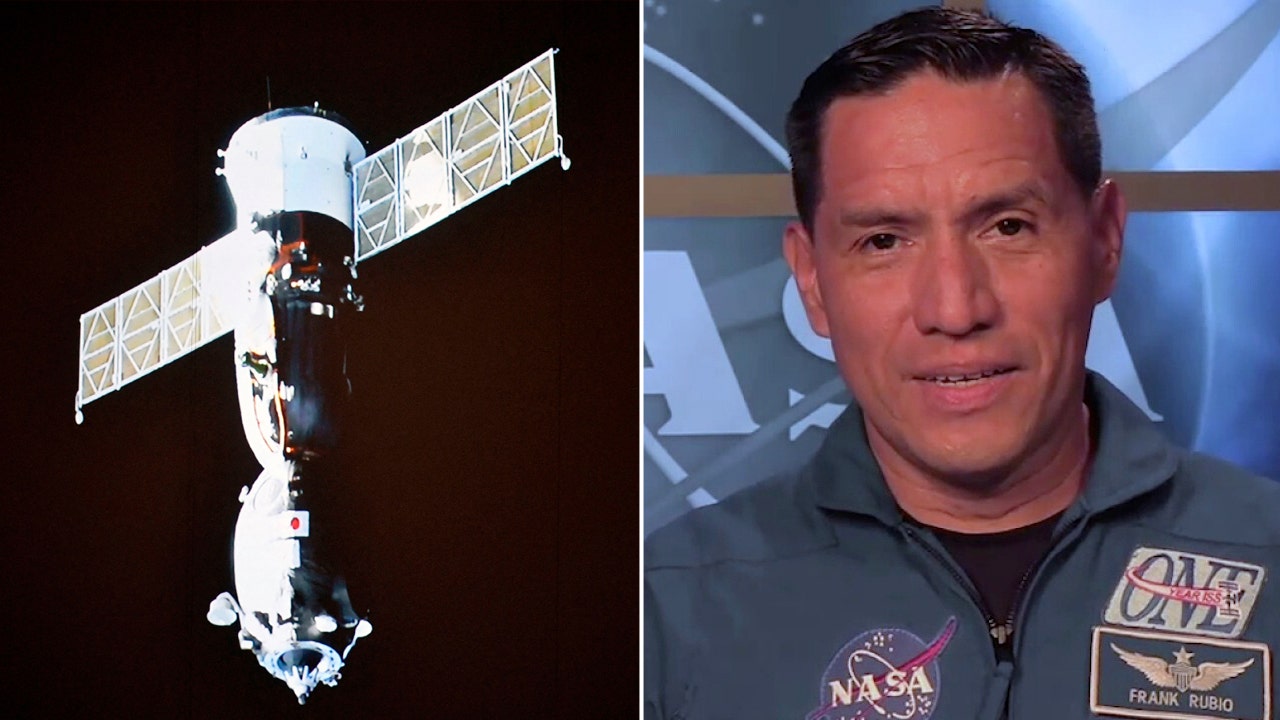The NASA astronaut who holds among the lengthiest records for time spent in space after being stranded on the International Space Station (ISS) because of technical difficulties with his spacecraft said the latest crew to get stuck in orbit will have to change their routine because of the unexpected hiccup.
Experienced Boeing Starliner astronauts Butch Wilmore and Suni Williams are stuck in space and won’t be returning home until February.
What was supposed to be an eight-day trip to space has turned into a months-long one. NASA officials announced over the weekend that the troubled spacecraft would return to Earth without them.
To get the astronauts home, SpaceX will launch a Dragon capsule with two astronauts to the space station in September, instead of four as scheduled, and return in February with four astronauts, Wilmore and Williams included.
NASA astronaut Frank Rubio spoke to Fox News Digital about how an extended stay on the International Space Station affects one’s exercise and nutritional routine. (Fox News Digital)
NASA astronaut Frank Rubio holds the record for the longest single-duration spaceflight for a U.S. astronaut and has some experience being in a comparable situation to Wilmore and Williams.
On Sept. 21, 2022, Rubio was launched into space for the first time on a Soyuz spacecraft alongside Russian cosmonauts Sergey Prokopyev and Dmitri Petelin. The spacecraft experienced a coolant leak, resulting in an extended mission until another Soyuz capsule could be launched to replace the damaged vessel. The new vessel was launched on Feb. 23, 2023.
Rubio ultimately spent 371 days in space, though he did not spend the longest amount of time in space at once. That record belongs to Russian cosmonaut Valeri Polyakov who spent 437 consecutive days on the former Mir space station in 1994 and 1995.
Rubio told Fox News Digital being in space for 371 days is a “mixed bag.”
HERE IS WHAT WE KNOW ABOUT BOEING STARLINER ASTRONAUTS STUCK IN SPACE

A Soyuz MS-20 spacecraft, similar to the craft used to launch NASA astronaut Frank Rubio into orbit in 2022, is seen after undocking from the International Space Station in December 2021. (Alexander Nemenov/AFP via Getty Images)
“You’re getting to experience something that very few humans have ever experienced, and so the longer you get to do that, the more natural it becomes [and] the more high-functioning you become as far as being able to work and get things done in space,” he said. “From that perspective, it’s great. Also, the fact that you get to look out the window and have the best view of the planet from outside the planet is pretty fantastic. So, it keeps you motivated, and so that part of [it is] great.”
But he also said there are some challenges.
For instance, Rubio said, you miss loved ones and friends as well as activities you like to do outside of work. All of that combined can take an emotional toll on the astronaut.
WHO IS NASA ASTRONAUT BUTCH WILMORE, WHO GAVE PRO-AMERICA LAUNCH SPEECH?

NASA’s Boeing crew flight test astronauts Butch Wilmore and Suni Williams are shown inside the International Space Station’s Harmony module and Boeing’s Starliner spacecraft on June 13, 2024. (NASA)
“I think most of us would say that the fact that you’re there and appreciating what a unique experience it is … the positives outweigh the negatives, and you just try to make the most of it knowing that it’s going to be a limited amount of time that you get to do that,” Rubio said.
Comparing his mission with that of Wilmore and Williams, Rubio said part of the job is having a deep trust in the team at NASA and knowing all sorts of testing and analysis is being done to ensure the crew is safe.
“That really gives you a lot of comfort, and it also helps with dealing with those difficulties of knowing that your mission is extended,” he said. “The fact that, you know, that this was the safest route possible really helps you cope in a great way.”
BOEING STARLINER LAUNCHES 2 NASA ASTRONAUTS INTO SPACE IN FIRST PILOTED TEST FLIGHT

NASA’s Expedition 71 crew members are shown along with Starliner’s crew flight test members Suni Williams (first row on the left) and Butch Wilmore (first row on the right). (NASA)
Switching from an eight-day mission to an eight-month mission also means a change in the daily routine.
According to Rubio, exercise on an eight-day mission would not likely be as important as an eight-month mission because of the amount of deconditioning the human body experiences.
“Once you’re out there for two months or longer, the deconditioning quickly escalates, and so it’s just really important to do that daily physical training routine, which includes both resistance training and cardiovascular training,” Rubio said, adding that he thinks as soon as Wilmore and Williams knew they would be on the ISS longer than a week, the routine began to be implemented. “For the next eight months, you know, or for really the full eight months, they’ll be working out pretty much the same, about two hours a day.”
As the first astronaut to participate in a study examining how exercising with limited gym equipment affects the human body, Rubio experienced first-hand the importance of working out on extended missions.
While stuck on the space station, he exercised on the ISS’s only bicycle and weight-lifting machine. The study he was part of is being used for future crewed missions to the moon and Mars on spacecraft that lack enough space for a treadmill.
Rubio’s mission helped build on the foundation of the Standard Measures study, which looked at the effects of spaceflight on the human body.
CLICK HERE TO GET THE FOX NEWS APP
“The most difficult thing about human spaceflight is the human: How do we keep ourselves healthy, and not just healthy but capable of accomplishing really difficult missions,” Rubio said, pondering questions that still linger when it comes to extended missions like returning to the moon or one day stepping foot on Mars. “We’re working on that every day, and it’s not just the exercise portion. It’s the nutrition portion. What’s the optimum amount of sleep? What psychological training do you need to both launch in a healthy psychological state and maintain a healthy team dynamic while you’re there?
“All those things weigh in, and we have great teams that are working on each component,” he added. “Eventually, we’ll start integrating that testing and, you know, testing as whole systems. … I think as we continue down that path, we’re going to learn more and more and allow us to do really hard things.”
Fox News Digital’s Pilar Arias contributed to this report.

